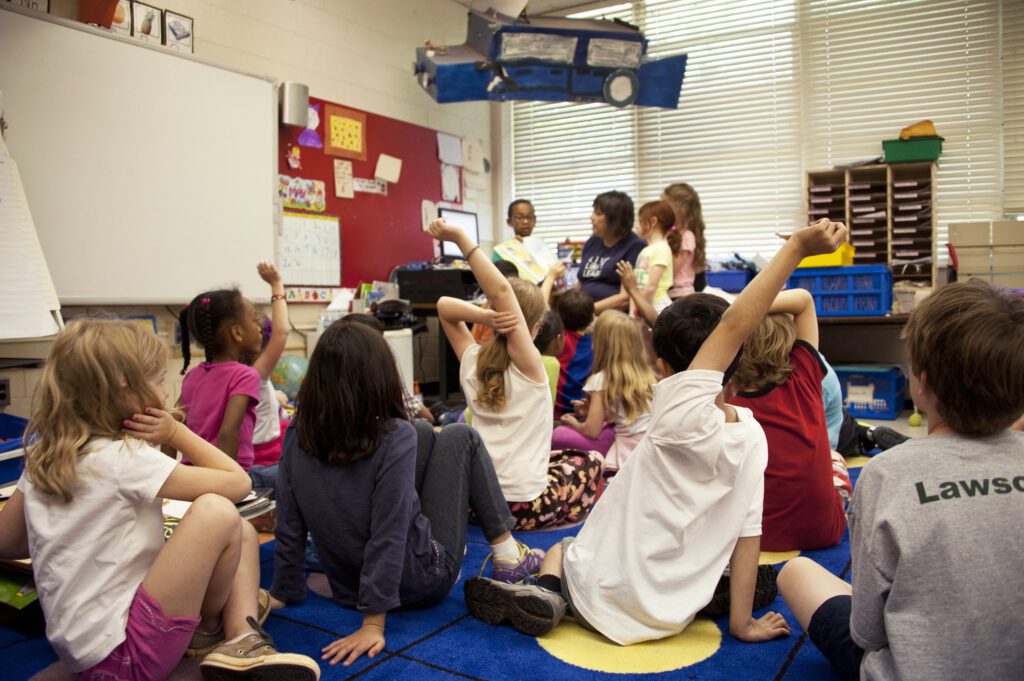Children with special educational needs and disabilities will be impacted more than ever this year by funding cuts, according to data

As they returned to school last month, children with special educational needs and disabilities (#SEND) are likely to have been significantly impacted by cuts in school funding and support, according to data.
97% of school leaders expressed concern over the increasing struggle to provide the necessary support for SEND students, labelling their funding for this as ‘insufficient’ according to a recent poll by the National Association of Head Teachers.
In fact, nearly a third of headteachers said they were forced to slash their budgets in 2020 – 2021 and 35% said that they would make further cuts this coming academic year. More than four in five admitted to having to buy extra support services that were previously funded by the local council.
School spending per pupil in England will remain lower than in 2010 following over a decade of budget cuts, new research has revealed.
The current government has committed an extra £7.1bn funding for schools in England for 2022-2023 – but it will not reverse a cut in real-term spending per pupil over the past decade, according to the Institute of Fiscal Studies (IFS).
A primary school teacher, who wishes to remain anonymous, said:
“Funding for SEND is used to pay teaching assistants, invest in specialist equipment and specialist services. As the funding has reduced, we have had to cut down on staffing, meaning we have had to significantly reduce the interventions we can offer those children.
“A lot of those interventions focused on social and emotional wellbeing. As these have reduced, the behaviour of some SEND children has deteriorated. In my career as a teacher, I have known 3 children get referred to Pupil Referral Units as we didn’t have adequate funding to meet their needs.”
Pupil Referral Units are alternative education provisions that are specifically designed to provide education for children who are not able to attend mainstream school and may not otherwise receive suitable education.
As well as the impact of reduced funding, there is evidence to suggest that SEND children are likely to have suffered from the shift back to the traditional classroom structure post-Covid.
A recent paper in the British Journal of Learning Disabilities highlights that virtual learning afforded children with learning disabilities enhanced opportunities for social inclusion, making it easier for many of them to communicate with their peers and teachers.
Parents and carers of SEND children also reported that home-learning has given them an increased understanding of their educational capabilities, thus helping them to better advocate for their child’s needs on return to school.
Teachers and school staff can help to ease this transition and minimise disruption by ensuring they have a full understanding of the different kinds of learning disabilities and special needs that pupils may struggle with, along with the different ways this can affect their school experience.
But with limited resources and the risk of staff and students having to isolate, it is more important than ever for anyone who works in a school setting to understand how best to deliver support to SEND individuals.
Recognising the issues faced by school staff, a leading online training provider has created a CPD certified course that offers guidance for anyone that works with young people, helping to increase awareness of the potential challenges and most effective strategies to offer assistance.
Sarah Baker, Chief Learning Officer at Virtual College, said:
“Providing teachers and school staff with the appropriate support and training when working with children with special educational needs and disabilities is paramount. This is why the course takes into account increased considerations in regards to these children’s safeguarding and care, and allows learners to understand the different types of developmental disabilities, models of disabilities, communication and terminology.
“With recent budget cuts and reduced levels of support teachers are experiencing, the need to access this information hasn’t lessened, which is why we are offering this course at a price that makes it accessible for all.”
Virtual College’s comprehensive course, ‘Working with Children with Learning Difficulties and Special Needs’, covers areas such as how staff can work best with parents, carers and support workers to assist SEND individuals, and the best approaches to making school more manageable for these children.











Responses